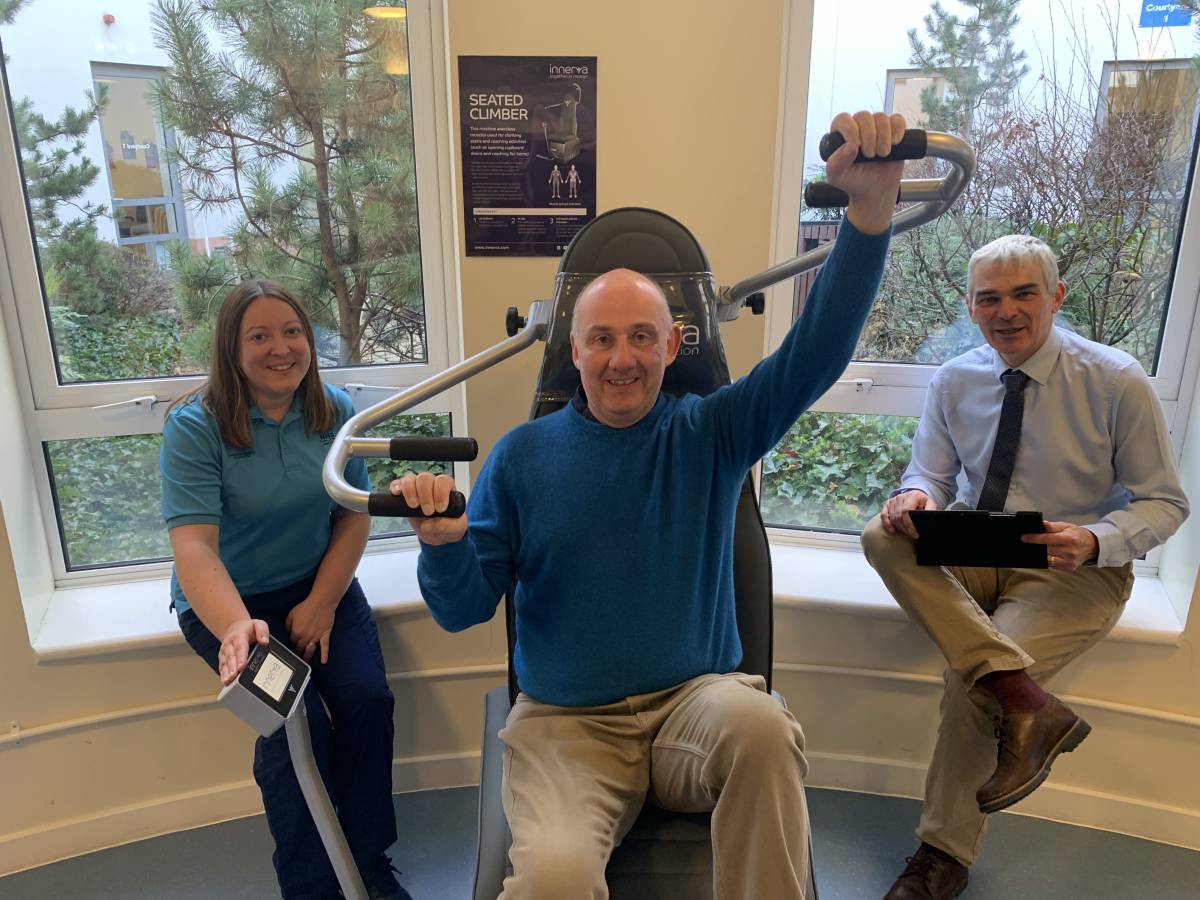Physio and academic Andy Kerr hails potential of 'technology rehab hubs' to aid stroke survivors
A Glasgow-based researcher whose keen interest in ‘human movement’ is underpinned by the lessons he learned as a physiotherapist has called for the creation of a network of modern ‘rehabilitation hubs’ for stroke survivors.
Andy Kerr, a senior lecturer who is based at the Department of Biomechanical Engineering at the University of Strathclyde, is leading a pioneering project at University Hospital Wishaw in Lanarkshire that aims to meet the growing demand for intensive rehabilitation.
Dr Kerr said: ‘Global guidelines recommend that survivors of stroke receive rehabilitation therapy that is individually tailored, intensive and delivered within enriched environments.
‘However, the overwhelming need for this rehabilitation far outstrips the capacity of most health care systems which don’t have enough specialist staff to deliver this service, which results in suboptimal, and often inequitable, rehabilitation. Technology offers a potential solution to bridge this gap.’
Dr Kerr wants to see rehabilitation hubs like Wishaw’s Technology-Enriched Stroke Rehabilitation Hub established in community settings across the country to ensure that stroke survivors can access therapy easily.
Wishaw’s stroke unit is the largest in Lanarkshire and aims to address the motor, cognitive and communication impairments caused by stroke with a range of integrated technology. The hub contains a treadmill with a specialist harness, a balance trainer and power-assisted equipment supplied by UK-based company Innerva.
Users can opt to exercise passively or actively, depending on where they are in their stage of recovery. In addition, the hub houses specialist cognitive and virtual reality equipment. Physiotherapists and other therapy staff design programmes for stroke survivors and guide them through their sessions.
With funding from the Engineering and Physical Science Research Council’s Impact Acceleration Account, a research assistant will assess the impact of the hub on in-patients in the early phase of their recovery with the aim of enabling them to achieve, or even exceed, the recommended levels of rehabilitation.
Most health care systems ... don’t have enough specialist staff to deliver this service, which results in suboptimal, and often inequitable, rehabilitation. Technology offers a potential solution to bridge this gap [Andy Kerr]
NICE's updated guidance
National Institute for Health and Care Excellence (NICE) guidelines suggest that stroke patients should receive three hours of rehabilitation a day, five days a week. Previous NICE guidance called for 45 minutes of rehab a day. To read more about this topic, read PhysioUpdate's article here.
Gillian Sweeney, an occupational therapist with NHS Lanarkshire and advanced practitioner for stroke survivors, led on the development of the trial and set up the hub. She said: ‘The NHS can’t meet new the NICE guidelines in isolation; current data suggests that on average patients receive just 14 minutes of physiotherapy, 13 minutes of occupational therapy and seven minutes of speech therapy a day.
'The new hub allows stroke survivors to access the intensive therapy they need to transform their rehabilitation outcomes.'
Dr Sweeney added: ‘Recent research conducted in the University of Strathclyde has shown this type of model to be safe and feasible when used by people in the chronic phase of stroke recovery, and has led to improved outcomes. It is exciting to now be trialling “technology enriched stroke rehabilitation" with NHS Lanarkshire in-patients, who are in the early stages of their recovery.’
Hub is a 'perfect example' of collaboration
David Heathcote, Innerva’s head of business development, said: ‘This project is a perfect example of how the healthcare and health and fitness sectors can work together to impact public health.'
Author: I A McMillanShare it with















